2018 Agent Barometer: Global survey tracks agent perspectives on destinations, online learning, alumni, and student experience
Findings from the 12th annual ICEF i-graduate Agent Barometer were released this week at ICEF Berlin. The 2018 survey was administered over August and September this year, resulting in nearly 1,300 responses from agencies in 101 countries. This year’s respondents collectively referred more than 350,000 students for study abroad in the previous 12 months.
Business outlook
The vast majority of agents responding to the 2018 survey – between 74% and 84% for most programme categories – said that they expect to place more students in the next 12 months than in the previous year.
Following on from some of the important destination trends identified in the 2017 Agent Barometer, this year’s survey also clearly indicates the continuing popularity of Canada as a study destination.
The following chart, for example, maps changes in the reported attractiveness of major English-speaking study destinations between the 2014 and 2018 surveys.
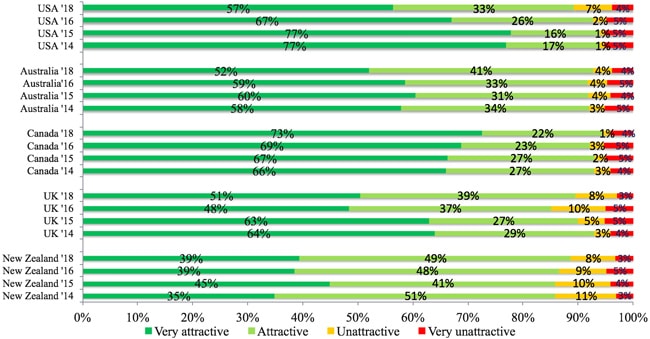
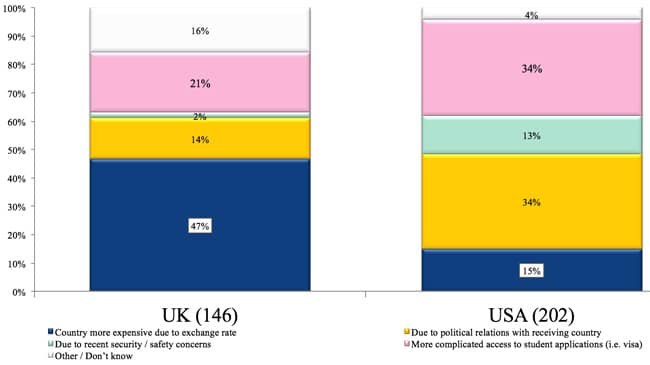
Areas of concern
As in previous years, the 2018 survey also tracks reported student concerns, both prior to and after arrival. This year’s findings, as summarized in the chart below, once again highlight the importance of strong support services at the study destination in order to stay on top of and respond to concerns around programmes, services, or accommodation.
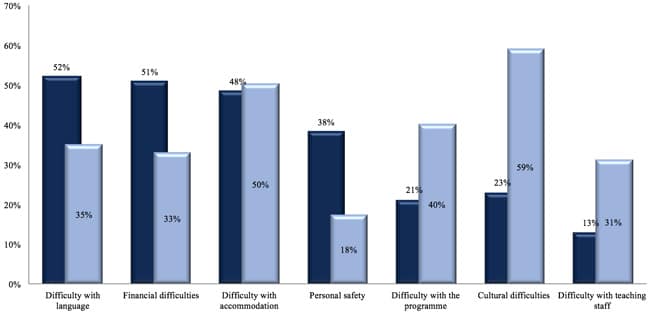
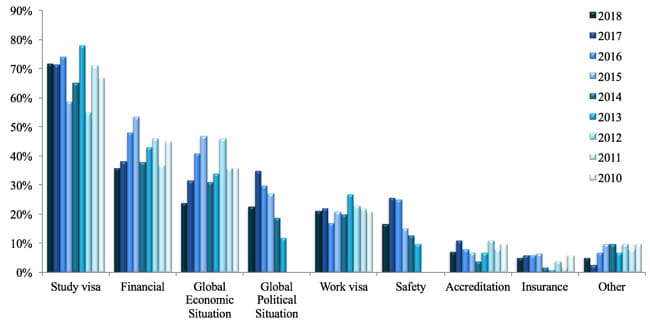
Growing interest in online
The 2018 survey respondents report modest student interest in online programmes. Given the rapid expansion in online enrolment in many markets around the world, we should understand this to mean that a relatively small proportion of students are inquiring with agents about such programmes.
However, nearly two-thirds of agent-respondents this year indicate an interest in representing online programmes. And more than six in ten (62%) indicated a preference for blended or hybrid programmes that combined online instruction with a component of study abroad.
Agent interest in online learning appears heavily weighted to post-graduate studies, with nearly eight in ten respondents (78%) saying that they felt online learning would be of greatest interest to master’s candidates. The following chart breaks this response down further to indicate the degree levels of greatest interest to responding agents.
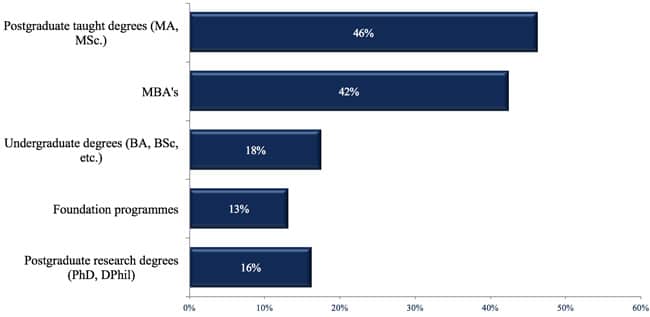
The alumni connection
Finally, the 2018 Agent Barometer reveals that agents may have an important role to play in alumni engagement. More than seven in ten (72%) report that they follow up with the families of currently enrolled students. Three quarters (76%) say they also follow up with students at graduation.
Many of these further student and family contacts are oriented to ongoing study or career counselling, but they underscore the fact that agents may often have important alumni information (and access) that is not always available to institutions and schools.
While nearly nine in ten responding agents (86%) maintain an alumni database, less than a third (31%) say that their higher education partners collaborate with them in contacting alumni.
At the same time, agents expressed a strong interest in working with institutions and schools in strengthening alumni networks, whether by organising alumni events or working with educators to help improve their alumni databases.
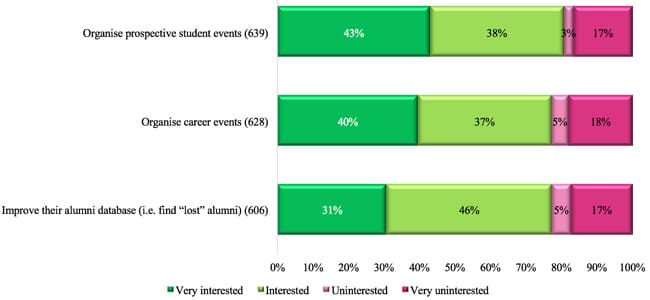
- “2017 Agent Barometer survey links student and agent perceptions with destination attractiveness”
- “Global survey compares student decision factors across study destinations”
- “Study explores adoption of online learning and its relationship to student mobility”
- “Study finds lots of room to improve in international alumni relations”
















